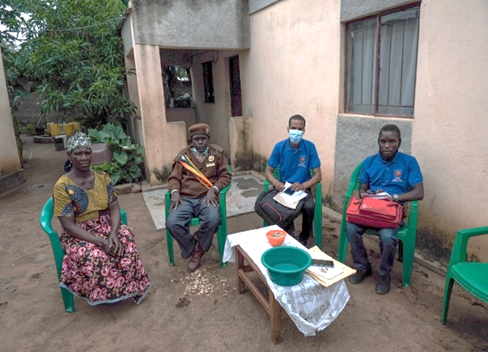Mozambique: Assessing differentiated energy access through the Multi-Tier Framework (MTF), a learning survey exercise
Human welfare has always been closely linked to an
appropriate provision of energy. However, in 2019, 600 million people in
Sub-Saharan Africa did not have access to electricity and about 900 million
people were lacking access to clean cooking energy (IEA, 2019). Mozambique is one
of the countries that suffers from energy poverty, with only 40.3% of its population having access to energy (MIREME,
2021). But what does access to energy exactly mean? There is, unfortunately, no universal definition and
hence no accurate measurement. The Multi-Tier Framework (MTF) approach to measuring energy
access promoted by the World Bank (see https://mtfenergyaccess.esmap.org/)
introduces a tiered measurement methodology, based on various energy
attributes, such as quantity, quality, affordability, and duration of supply. This
methodology focuses on the level of available energy services from the consumer's
point of view, and distinguishes 5 different tiers. These range from 0 - which represents
no significant access to any electricity at all, to 5, which corresponds to at
least 23h of electricity per day. Similarly, a Multi-Tier Framework for measuring
access to cooking solutions has been elaborated, based on levels of cooking exposure,
cookstove efficiency, convenience, safety, affordability, and fuel availability.
In order to better understand the current level of energy poverty in
Mozambique, Enabel supports the Ministry of Mineral Resources and Energy
(MIREME) with one pilot survey that uses the MTF methodology. The methodology is
adapted for this purpose and monitored by VITO, a Belgian independent research organization
in clean technology and sustainable development (see https://vito.be). The objective of this learning exercise is to introduce
technical government staff from the central and provincial level to the
implementation of MTF surveys and their potential to better inform local
planning and monitoring of universal access to affordable, reliable, sustainable,
and modern energy.
In the Central Region of Mozambique, which is the geographical
focus area of the Mozambican-Belgian bilateral cooperation project CB
MIREME/ARENE, the provinces of Tete and Zambezia were identified for this learning
survey. Tete because it has an area that is directly connected to the Cahora
Bassa dam, the largest hydroelectric scheme in southern Africa. Zambezia was
selected because it has the largest solar plant in Mozambique (40 MW). The
first surveys were conducted in Tete, between 28th of March and 16th
April 2022, in Cahora Bassa District (urban), and Chifunde District
(rural). A total of 71 households were surveyed. The second survey covered 81 households
in Zambezia, between 25th of April and 9th of May in
Mocuba District (urban), and Milange District (rural). It is important to note
that the selection of the districts and neighborhoods was done by the
Provincial Services for Infrastructure (SPIs), and took into consideration on-
and off-grid consumers and different energy sources.
Technical staff from the SPIs, MIREME central level, the Energy
Regulatory Authority ARENE, and the Energy Fund FUNAE participated in the
learning exercise. The participants were unanimous in recognizing the
importance of the MTF methodology. Their first observations are that, even where
households have access to the national or a decentralized grid, they only use
it for particular activities, such as charging phones, and not for basic needs,
such as cooking. Electricity from the national grid is found to be too
expensive for energy-intensive activities. It also became apparent that
households connected to a local decentralized grid paid much less for electricity
than those connected to the national grid.
It is important to reiterate that due to time and methodological
constraints, proper probabilistic sampling methods were not considered for this
learning exercise. The data are not intended to draw statistically significant
conclusions, but rather to better understand the collection and analysis of energy
data, based on the MTF methodology. We will report in full on the data
collected through our random walks, once VITO has been able to assist us in
their final analysis. To statistically answer the actual state of energy access
of Mozambique’s population, a national survey is deemed advisable. However, we
can already conclude that there is a clear need for more affordable and
sustainable solutions to electrification and cooking, powered by renewable
energy. The promotion of such solutions will assist Mozambique in achieving its
ambition to green its energy mix and mitigate the impacts of climate change,
which are increasingly being felt in the country.
Latest news from this project
No news

